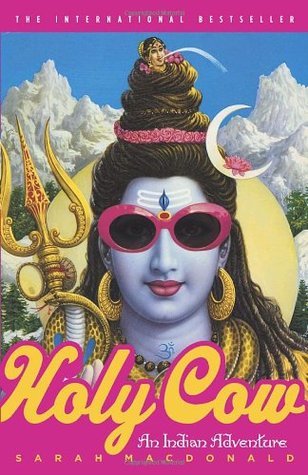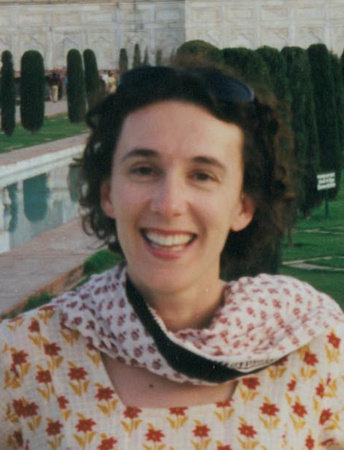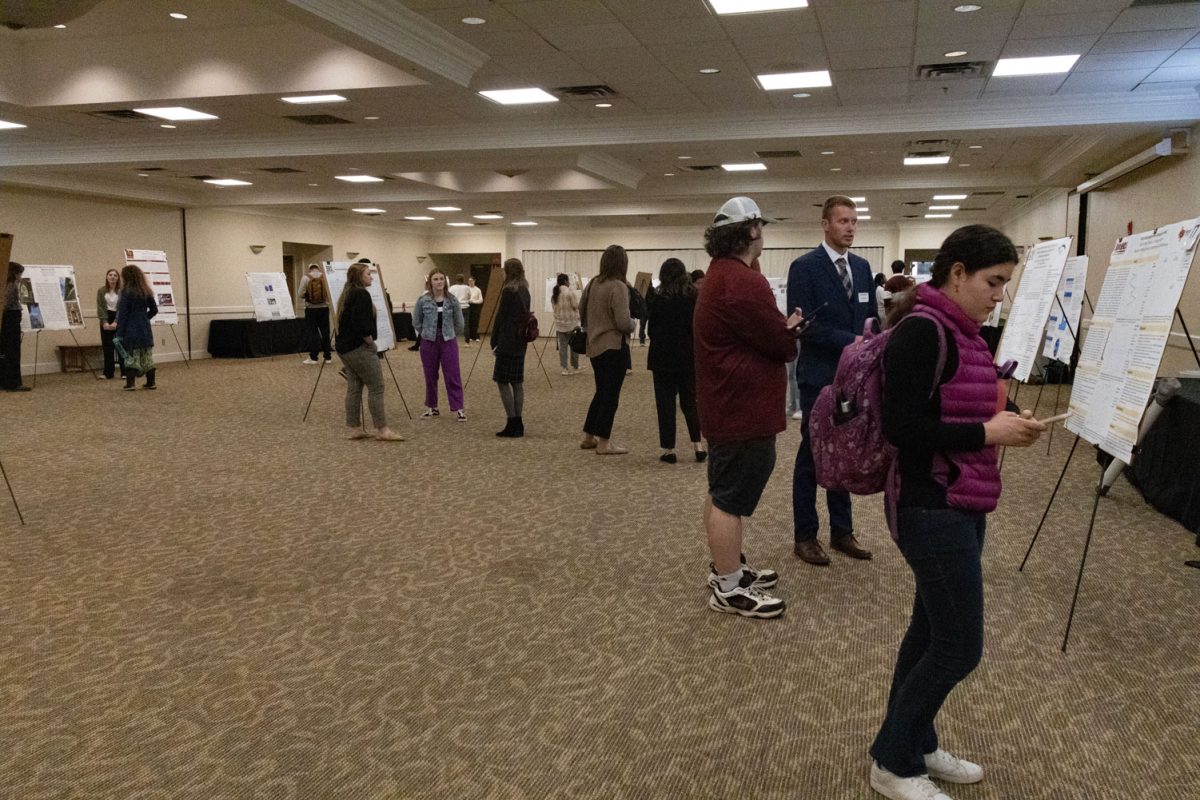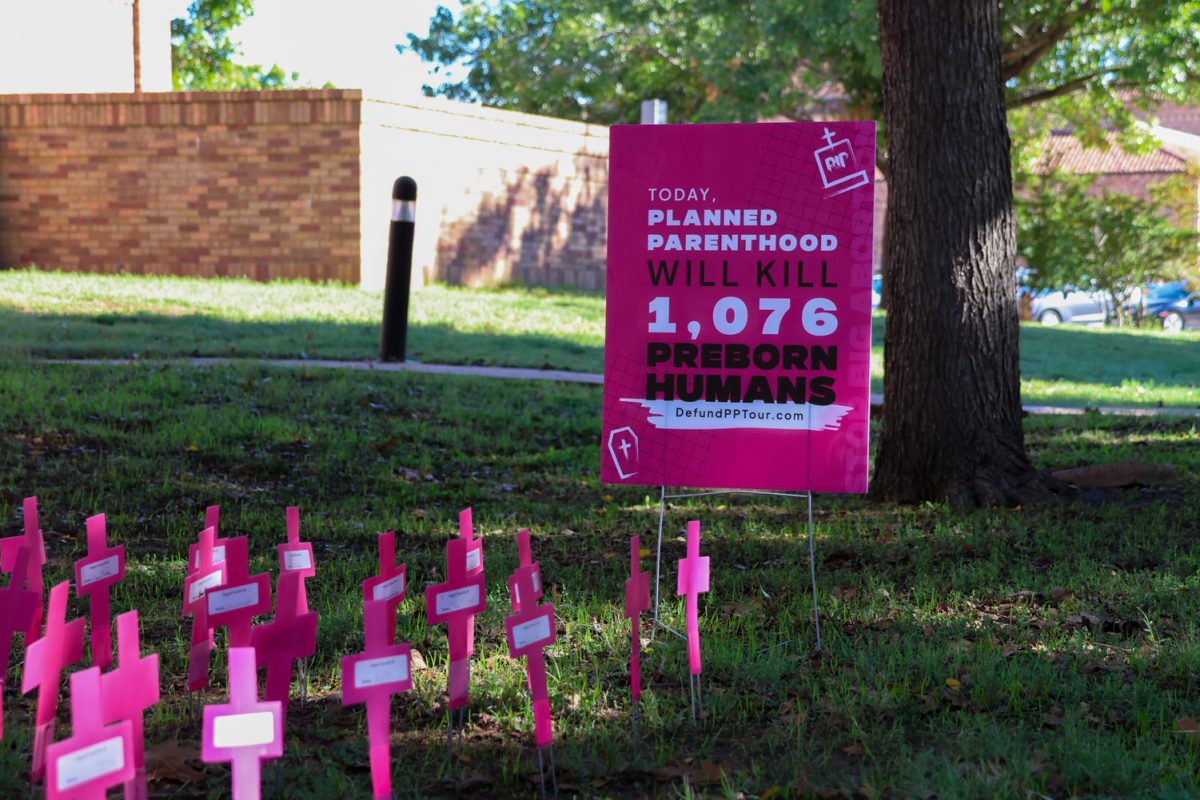If I was not reading “Holy Cow” by Sarah Macdonald for a project, I wouldn’t have gotten past the preface.“Holy Cow” is a travel memoir recounting Macdonald’s time in India. In her two years there, she learned to love the culture and came to understand aspects of the different spiritualities that exist in India.
However, before she learns anything about the culture she is absolutely miserable.
I hated reading the first half of this book. It was like pulling teeth every chapter I read.
The preface set Macdonald up for failure. In it, she recounts the time she was traveling in India as a young adult and how a homeless man read her palm. She takes it as a very mystical and magical thing, when in reality it was just a homeless man reading her palm.
After the homeless man reads her palm, she gets on a plane home to Sydney. As she flies off, she flips off the country vowing to never return.

In her thirties, she breaks that vow when she and her long-distance boyfriend, Jonathan, decide they can no longer be away from each other.
Macdonald spends the first half of the book being helpless, homophobic, sexist, racist and orientalist. She was completely joyless and there was not a single thing she found joy, whimsy or comfort in. It was soul-sucking to read.
One moment in the first chapter that really stood out to me was when she decided to be homophobic. But she was not outwardly homophobic to the people she was talking to. Instead, she writes it in the book as if it is some joke between the reader and her.
Her taxi driver had disappeared and was late to pick them up, so she decided to investigate and found him lying in a hammock with another man. Instead of reacting like a normal person, she decided to point out the fact she thought he was gay.
“…I walk over to the end of the bed with my hands on my hips and say in my best hey-I-don’t-mind-if-you’re-gay-but-you’ve-got-a-job-to-do voice…” Macdonald wrote.
What does that even mean? What does that voice sound like?
What I don’t understand about this book is why she wrote it the way she did. If these had been diary entries extrapolated and put together to form her memoir, I’d understand it a lot more, but she wrote this with hindsight.

The way she ordered the events of the book is a sure-fire way of making the reader hate her. And I did. It was a lot easier to hate her than to be sympathetic to her, which is not what you want when you’re writing any book, let alone a travel memoir.
If she started her book literally anywhere other than at the very beginning of her travels to India, it would have been better. Start your story in the middle of the action, don’t force the reader to read 70+ pages of you complaining and whining.
Another thing about her writing is the way she writes the accents of people. Personally, I hate reading stories from people who phonetically write out people’s accents. It feels tacky.
However, it’s really telling about Macdonald’s character in the story because almost every Indian person’s accent is written out, but almost none of the white people’s accents are written out.
In the preface, she talks to a beggar man, his dialogue is written like this: “Madaaamz, sweet ladies, any spare rupees, please give, please, no wife, many cheeldren, you reesh, me poor, pleeeaze.”
However, when she talks to an Israeli hippy later in the story, the hippy’s dialogue is written like this: “We have to grow up young in Israel. We’re in the army before we turn eighteen, there’s no time to rebel. This is the place we can rebel. We feel like we’re in Wonderland here.”
She does the same thing when both she and Jonathan speak as well.
That’s not to say the book is completely unreadable.
After she gets married and goes through her spiritual journey, it’s actually quite nice to read. In these chapters, I could see some of those journalistic skills come out.
Most of the early chapters are first-hand accounts from Macdonald, but later on, she talks to and interviews more people, which makes this story far more colorful.
Macdonald does not just interview one religious leader, instead she meets a large variety of people of many different classes and religions. These people have such unique and colorful ways of seeing the world, it feels like the reader is now going on the spiritual adventure with Macdonald instead of watching her passively.
One of my favorite quotes in this book is on page 144 when Macdonald is talking to a Hindu woman named Gayatri about religion.
“I like your Jesus and such, and there is no doubt that he was a great sadhu, most likely trained in India, but you know, he was wrong about God. God is not a judgemental giant sitting up in heaven, it’s a force within us all — we are light bulbs in the electrical system of the universe,” Gayartri said.
This quote paints such a beautiful picture that I am so happy Macdonald decided to include it in the book. However, Macdonald’s journalistic instincts are also a negative in her writing.
She opens chapter six with the lead, “India has a hair fetish.”
Though it’s a very interesting lead, it’s also extremely disrespectful and culturally biased. Hair plays a role in almost any culture.
Women of many different nationalities and in many religions will cover their hair for one reason or another. In American culture wearing your hair a certain way can be seen as an act of protest or rebellion.
To say “India has a hair fetish” just because Indians wear their hair in many different ways is ridiculous and Macdonald is oblivious to that fact.
Overall, this book is not worth reading. Though Macdonald’s spiritual journey and the people she meets are so interesting, that does not make up for her racism and bad decision-making. I give this book 1.5 out of 5 Mustangs.


















